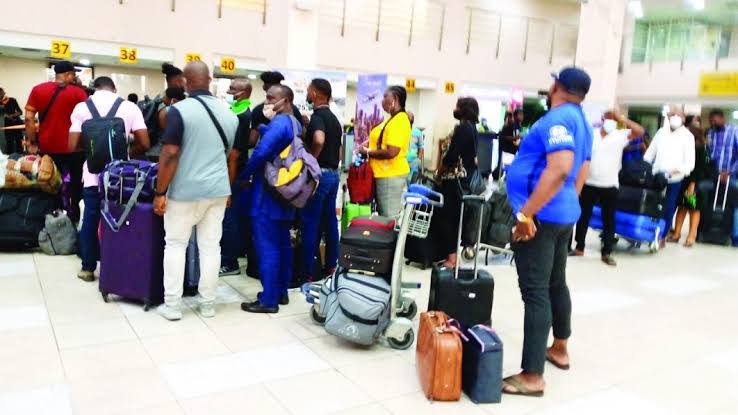New statistics from the UK Office for National Statistics (ONS) reveal that 52,000 Nigerians migrated to the UK in the year ending December 2024. This significant migration occurred despite an almost 50% reduction in the UK’s overall net migration figures.
Nigerians were among the top non-EU+ nationals moving to the UK in 2024. Most of these migrants arrived for work or study purposes, reflecting the strong ties between Nigeria and the UK.
Out of the total Nigerian migrants, 27,000 were issued work visas, 22,000 came to study, and 3,000 migrated under other visa categories. These numbers highlight how important work and education opportunities are to Nigerians seeking to relocate abroad.
Nigeria’s contribution to non-EU+ migration is comparable to countries like India, Pakistan, and China. These nations consistently rank as top sources of long-term migration to the UK.
The ONS report noted that Indians made up the largest group of non-EU+ nationals moving to the UK in 2024. For Nigerian, Indian, and Pakistani migrants, work and study were equally significant reasons for relocation. However, Chinese nationals mostly migrated for education, with 53,000 arriving to study and only 5,000 for work.
The report also highlighted a consistent trend where Indian, Pakistani, Chinese, and Nigerian nationals dominate the non-EU+ migration statistics year after year.
When examining the demographics, the report revealed that 52% of non-EU+ immigrants in 2024 were male, while 48% were female. The majority of these migrants (83%) were of working age, between 16 and 64 years. Children under 16 accounted for 16%, while only 1% were aged 65 or older.
Despite these figures, the UK experienced a significant drop in overall net migration. The ONS estimates that net migration in 2024 was around 431,000, nearly half the 860,000 recorded in the previous year.
The decline in net migration is attributed to reduced arrivals of non-EU+ nationals on work and study visas. Additionally, emigration increased, particularly among individuals who initially arrived on study visas and chose to leave after pandemic-related travel restrictions were lifted.







